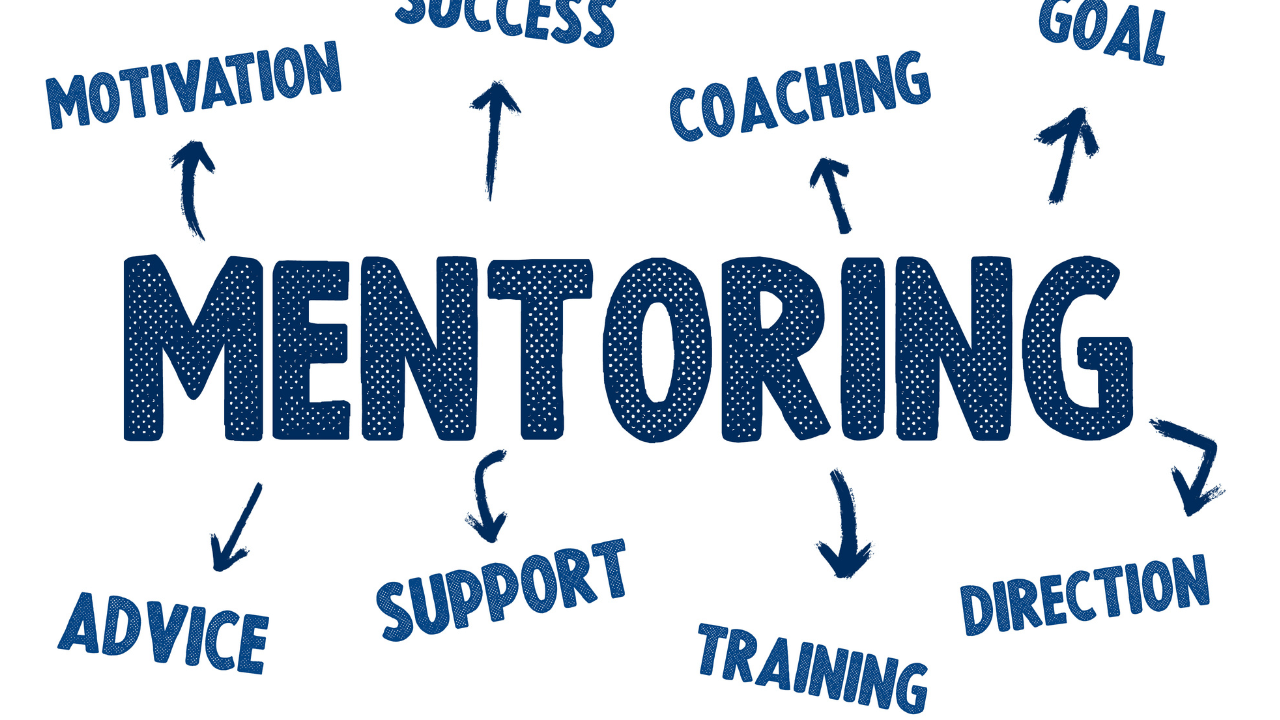Language:
The Entrepreneur’s Guide to Finding and Approaching Mentors

You know what? Even the dragon master needs a Master Shifu to make him the dragon master, referencing Kung Fu Panda, obviously.
Like your business, which can thrive and grow exponentially with mentoring from the right individual.
Now, the question is how to find and approach mentors who can guide you toward a growth trajectory.
This article discusses this topic. Identifying and approaching potential mentors requires a strategic approach, focusing on individuals whose expertise aligns with your business goals and personal growth aspirations.
In this article, we will explore strategies for finding and engaging with mentors who can propel your business and provide essential tips on building a mutually beneficial mentor-mentee relationship.
Join us in exploring how to harness the power of mentorship to conquer the American dream with your US business venture.
Understanding the Role of a Mentor
Defining Mentorship for Entrepreneurs
Mentorship for entrepreneurs transcends traditional guidance, acting as a catalyst for growth and innovation.
In the entrepreneurial world, a mentor is an advisor and a strategic partner who shares their experiences, insights, and network.
Unlike a consultant, a mentor offers ongoing support and a relationship grounded in trust and mutual goals.
This relationship is vital for entrepreneurs navigating complex business landscapes, as mentors can provide personalized advice on decision-making, leadership, and overcoming challenges.
They serve as a sounding board for ideas and a source of motivation during difficult times.
By leveraging their industry knowledge and connections, mentors help entrepreneurs avoid common pitfalls and seize opportunities effectively.
The Impact of Mentorship on Business Success
Mentorship significantly influences business success by providing entrepreneurs with the tools and knowledge needed to thrive. Studies show startups with mentors are more likely to survive the critical early years.
Mentors bring a wealth of experience and insight that can help entrepreneurs make informed decisions, avoid costly mistakes, and identify growth opportunities.
They offer a fresh perspective on challenges, enabling entrepreneurs to view problems from different angles and devise practical solutions.
Additionally, mentors can open doors to valuable networks, facilitating connections that might otherwise be out of reach.
This access to a broader network can lead to partnerships, funding opportunities, and customer acquisition.
Mentorship also fosters a culture of continuous learning, encouraging entrepreneurs to adapt and innovate in an ever-changing market.
Identifying Potential Mentors
Recognizing Industry Leaders
Identifying industry leaders as potential mentors is a strategic step in your entrepreneurial journey. Industry leaders often have a track record of success and a deep understanding of the market dynamics in their field.
To recognize such leaders, start by researching those who have pioneered innovative solutions or driven significant growth in your sector.
Look for individuals frequently invited to speak at industry conferences or publish thought leadership articles. These leaders typically have a broad perspective on industry trends and challenges.
Additionally, consider their professional network involvement and ability to influence others. By targeting leaders with a proven history of mentorship, you increase the likelihood of a productive and inspiring relationship.
Moreover, such mentors can provide insights that are not only practical but also visionary, helping you to position your business competitively and sustainably in the market.
Leveraging Professional Networks
Professional networks are invaluable resources for identifying potential mentors. These networks encompass a wide array of individuals with diverse experiences and insights.
By actively participating in these networks, entrepreneurs can connect with leaders who align with their business goals and values.
Start by engaging in industry-specific groups, attending networking events, and joining online forums. Alumni networks are particularly effective, as shared educational backgrounds can facilitate stronger connections.
Research shows that individuals are more likely to invest time and resources in those with shared experiences or affiliations.
Platforms like LinkedIn offer tools to identify and reach out to industry veterans who are willing to mentor.
Approaching Your Prospective Mentor

Crafting a Compelling Introduction
A well-crafted introduction is critical to making a solid first impression when reaching out to a prospective mentor. Start by clearly stating who you are and your purpose for contacting them.
Briefly highlight your background, including relevant achievements or experiences, to establish credibility.
It’s important to articulate why you have chosen them specifically, referencing their expertise or achievements that align with your goals.
It will demonstrate that you’ve done your homework and are genuinely interested in their guidance. Be concise and respectful of their time, suggesting a brief meeting or a call to discuss the possibility of mentorship.
Also, express what you hope to gain from the relationship and how you plan to contribute, emphasizing the potential for mutual benefit.
Building a Genuine Connection
A genuine connection with a prospective mentor is essential for a successful mentorship relationship. Begin by actively listening during your initial interactions, showing genuine interest in their experiences and insights.
Ask thoughtful questions that reflect your understanding of their work and express appreciation for their time and advice.
Share your experiences and challenges candidly, creating an open dialogue fostering trust and mutual respect. To strengthen the connection, it’s important to find common ground, whether through shared interests or similar career paths.
Follow up with personalized messages or updates on how their advice has impacted your decisions, demonstrating your commitment and gratitude.
Asking the Right Questions
Focusing on Growth-Oriented Queries
Focusing on growth-oriented queries can lead to more productive and insightful conversations when engaging with a mentor.
These questions should aim to uncover actionable advice and strategic insights that can help propel your business forward.
Start by asking about the critical skills and knowledge areas that have contributed to their success and how you can develop them. Inquire about specific challenges they faced and the strategies they employed to overcome them.
This can provide a framework for addressing similar issues in your entrepreneurial journey.
Seek guidance on industry trends and how to leverage emerging opportunities. Questions that address long-term vision and strategic planning can also offer valuable perspectives on sustainable growth.
Concentrating on queries that emphasize learning and development allows you to maximize the value of mentorship and apply insights directly to your business endeavours, ultimately driving your entrepreneurial success.
Balancing Professional and Personal Insights
Balancing professional and personal insights can enrich the mentoring experience when seeking guidance from a mentor.
Professional queries focus on industry-specific knowledge, strategic advice, and skill development, providing a roadmap for navigating business challenges.
On the other hand, personal insights delve into the mentor’s journey, including how they managed work-life balance and overcame personal obstacles.
This dual approach offers practical strategies and humanizes the mentoring relationship.
Aim to ask questions exploring their professional achievements and personal growth, such as lessons learned from failures or pivotal career moments that shaped their path.
This comprehensive understanding can inspire you to craft a balanced approach in your entrepreneurial journey, ensuring that personal values and professional ambitions align for sustained growth and fulfilment.
Maximizing the Mentorship Experience

Setting Clear Goals and Expectations
Establishing clear goals and expectations is crucial for a fruitful mentorship experience.
Begin by identifying specific objectives you hope to achieve through the mentorship, whether it’s enhancing specific skills, gaining industry insights, or navigating business challenges. Communicate these goals with your mentor to align both parties’ expectations.
This transparency helps structure your interactions and ensures the mentorship remains focused and productive. Additionally, discuss the preferred communication methods and meeting frequency to maintain a consistent and effective dialogue.
Setting a timeline for achieving your goals can also provide motivation and accountability.
Regularly revisit and adjust your objectives as needed, allowing for flexibility as you gain new insights.
By having well-defined goals and expectations, you create a framework that maximizes the value of the mentorship, ensuring that both you and your mentor are working towards meaningful outcomes that contribute to your personal and professional growth.
Maintaining a Long-term Relationship
Creating a lasting mentorship relationship requires ongoing effort and mutual respect. To ensure longevity, maintain regular communication with your mentor, even after achieving initial goals.
This can involve periodic check-ins, updates on your progress, or sharing successes and challenges. Expressing gratitude and acknowledging your mentor’s impact fosters a positive and reciprocal relationship.
Look for opportunities to add value to their endeavours, whether through sharing relevant insights, offering assistance in their projects, or connecting them with valuable contacts.
As your careers evolve, reassess and adjust the mentorship dynamics to reflect new goals and aspirations.
Remain open to developing the relationship beyond a formal mentorship into a broader professional friendship or collaboration.
How Can doola Assist You in Growing Your Business?

Entrepreneurs from across the world benefit from the exceptional network of founders we have built over the years. By signing up for doola Total Compliance, you not only offload your company registration and tax compliance burden.
But you get access to doola Community. An exceptional group of visionaries has taken their first step towards their American entrepreneurial dream.
You, too, can take that first step by signing up with doola today.
FAQs

Why is finding the right mentor crucial for my business success?
Finding the right mentor is vital because they can provide valuable insights, guidance, and industry connections that can significantly accelerate your business growth.
A mentor helps you avoid common pitfalls, make informed decisions, and navigate complex business challenges, ultimately contributing to your long-term success.
How can I identify potential mentors who align with my business goals?
Identifying potential mentors involves researching industry leaders with a track record of success, participating in professional networks, and attending industry-specific events.
Look for individuals who have achieved what you aspire to and are respected for their expertise and leadership in your field.
What should I include in my introduction when approaching a prospective mentor?
When approaching a prospective mentor, your introduction should consist of a brief background about yourself, the reason for contacting them, and why you have chosen them specifically. Highlight your relevant achievements, express your interest in their guidance, and suggest a brief meeting to discuss potential mentorship.
What are some key questions to ask a mentor during initial meetings?
During initial meetings, focus on growth-oriented questions that explore critical skills, industry trends, and strategies for overcoming challenges.
You can also balance professional inquiries with personal insights by asking about their journey, lessons learned, and work-life balance to gain a holistic understanding.
How can I maintain a long-term relationship with my mentor?
To maintain a long-term relationship, keep in regular contact with your mentor, provide updates on your progress, and express gratitude for their support.
Look for opportunities to add value to their work and be open to evolving the relationship into a broader professional friendship or collaboration as your careers progress.



